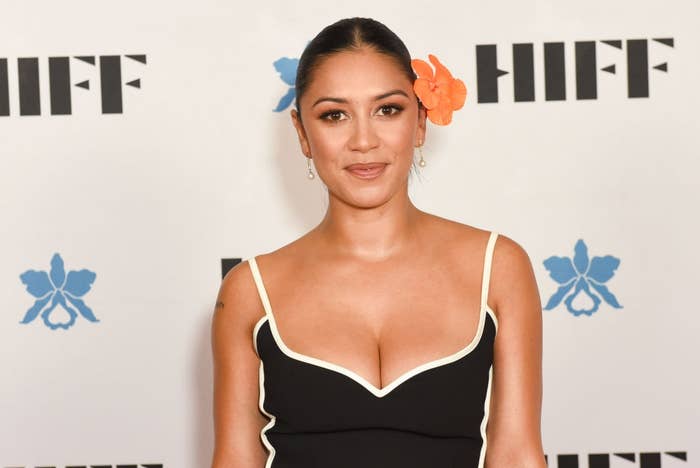
After making a name for herself in New Zealand, Luciane Buchanan is taking over Hollywood. She became one of the first Pacific Islander women to star in a Netflix show with The Night Agent, which remains in the streaming platform's top 10 most-watched shows list. In August, Jason Momoa's Chief of War hits Apple TV+, where fans can watch Luciane take on the leading role of Kaʻahumanu. And this week, Deadline announced her casting in the next Evil Dead film.
Additionally, Luciane made history by writing the first Tongan short film to premiere at Sundance. Lea Tupu’anga/Mother Tongue was the first professional short film both written and directed by Tongan women.
For BuzzFeed’s Voices of the Pacific series, I sat down with Luciane to chat about her audition for Chief of War, her favorite Tongan food, and more.
Editor's note: This interview has been edited for length and clarity.
BuzzFeed: You portrayed Rose Larkin in The Night Agent, one of Netflix’s most-watched shows of all time. How does it feel being one of the first Pacific Islander women — if not the very first — to star in a Netflix show?
Luciane Buchanan: Oh gosh. I don't know if I'm the very first, maybe, but I didn't really think about it too much at the time when we were making it. I just thought it was another show. And when it was finally released the next year, I was like, "This is very unusual," especially being my first US job as well. It wasn't 'til later [that] a lot of people were saying it's so nice to see a Pacific Islander as a love interest, not the best friend or helper or coworker. When someone said that, I was like, "That is really awesome." I'm happy that I can open those doors for the next generation because there's going to be more of us, for sure.
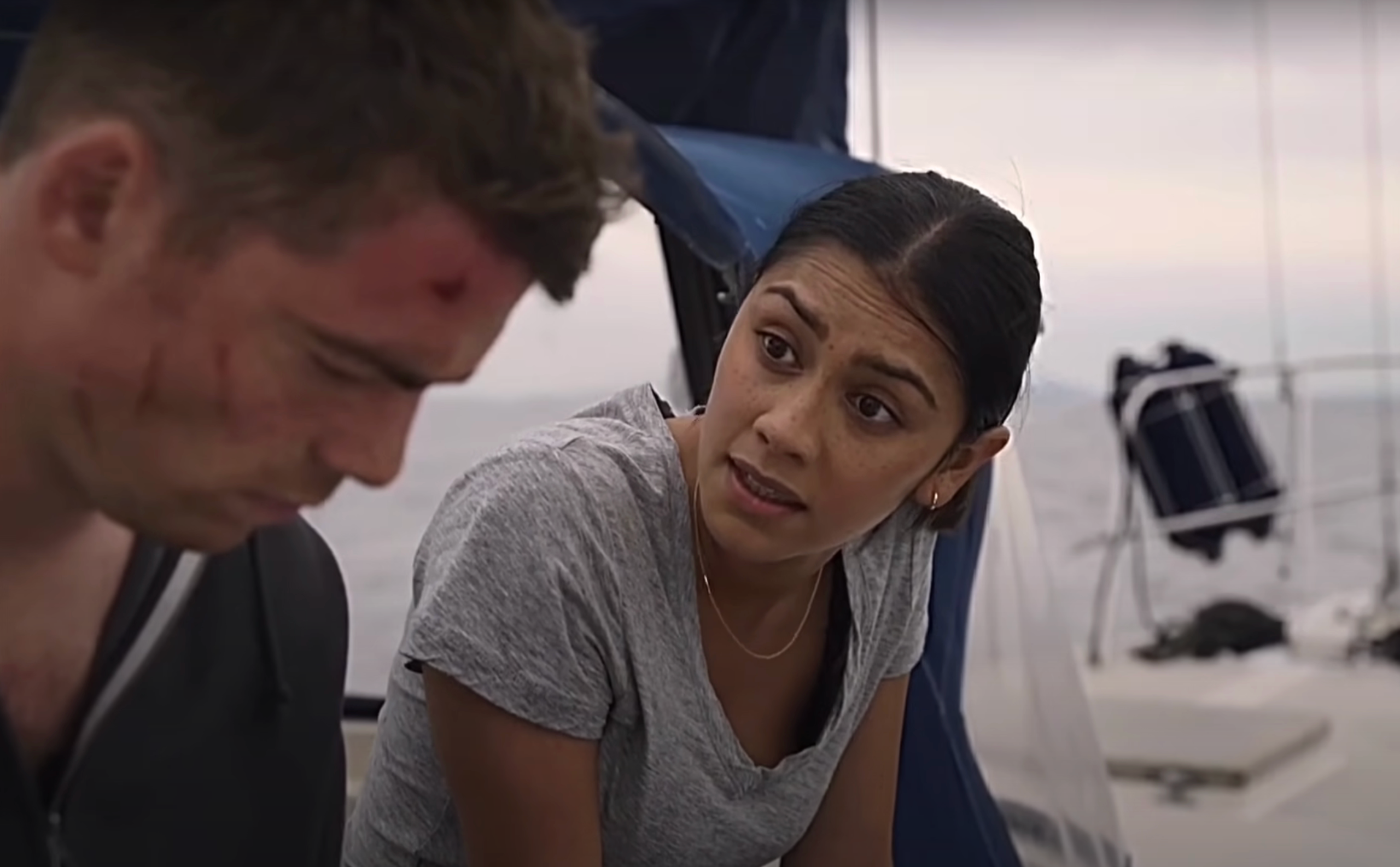
There’s a big shift in your character from Season 1 to Season 2 as Rose struggles with the trauma and PTSD of everything she went through. What was it like tapping into her vulnerable side and highlighting mental health on the show?
Well, it's always an issue for female characters portrayed on television. We are either seen as weak and fragile, or the complete opposite, this badass who pushes everything under the rug and suppresses everything. I think those two things can coexist. What was so interesting about Rose is that in the first season, everyone fell in love with this badass tech girl who's smart and takes no shit. And it was nice and refreshing for Season 2 to show that she is still human. She's not this robot who can handle these very stressful situations that she's not used to. Peter is from that world; she's not trained. So, just making her human and grounded was a big goal for me.
At the end of Season 2, Peter tells Rose to stay away — a heartbreaking moment for all the fans like me who want to see Peter and Rose together. Does that mean fans shouldn’t expect to see you in Season 3?
Oh gosh, I can't tell anyone. The thing is that it's a really popular show, and no doubt it'll go for multiple seasons, and we want to see where Peter goes with his new mission. I guess he's now a double agent, working on both sides. So, whether that entails his relationship with Rose, we'll have to wait and see.
BuzzFeed: Whether or not you're in it, can you share any hopes for Season 3?
I hope the fans are satisfied. The first season was based off a book, and then Season 2 was just our writers room taking full creative license. I hope we maintain that same fan base and people still enjoy it and watch it as much as they did the first two seasons.
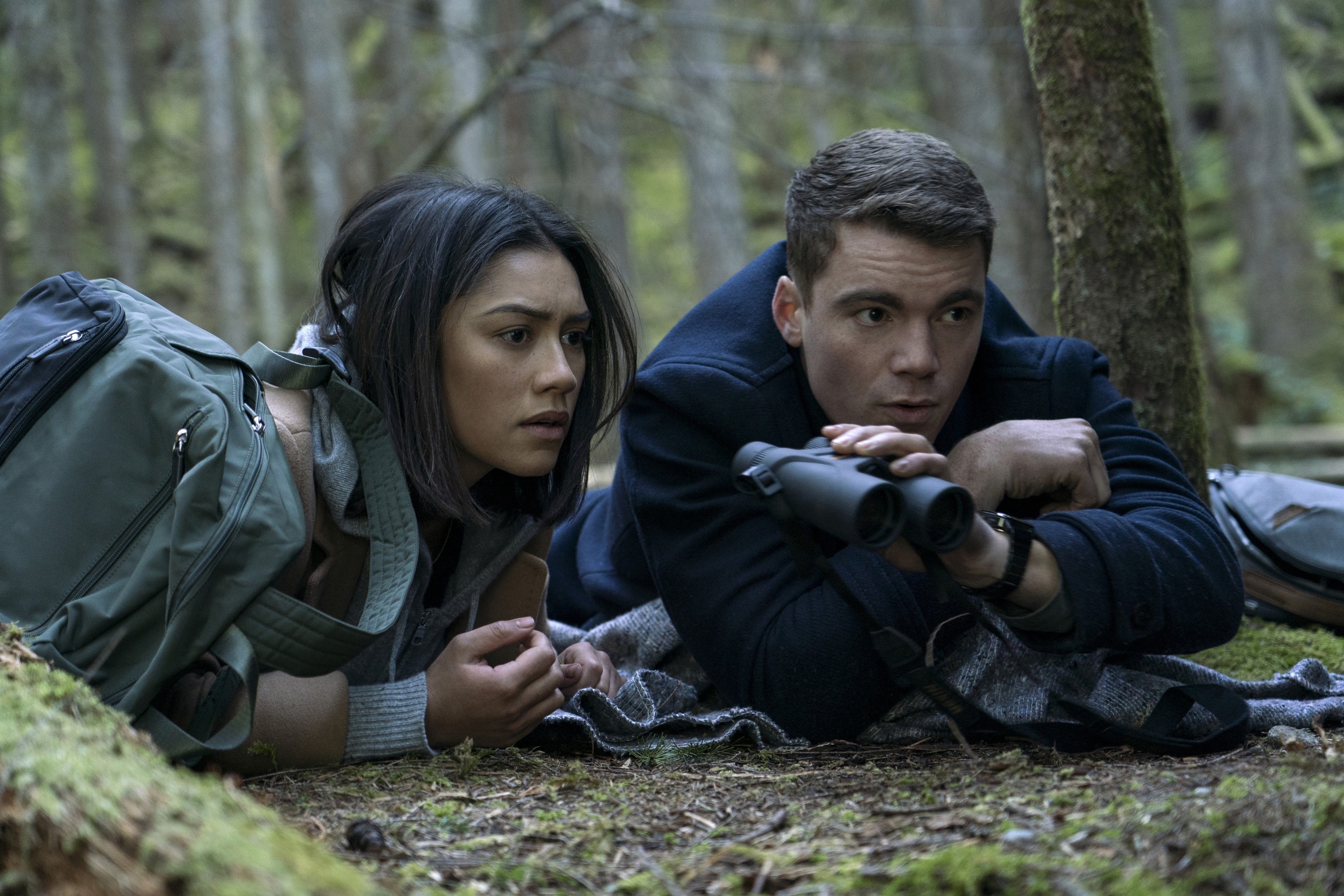
I was so happy to see Simone Kessell playing your aunt in Season 1. Casting a fellow Pacific Islander to play Rose’s relative surprised me actually — that’s still not the norm in Hollywood. While the industry is slowly but surely making progress, what do you hope to see in the coming years?
Oh man, I think it's changing completely. Even back home, there's so many more Pacific Island actors, Māori actors, even Hawaiian actors, coming through. It just comes down to experience and opportunity. It's such an interesting time in the US with conversations around DEI and whether that's something that's actually happening, or is the pendulum swinging completely the other way? But we just need to start making our own stories, and that's something that I'm so passionate about.
I made a short film out of this frustration of not being able to play a hafekasi [mixed] Tongan. I was like, "Oh, I can't really go up for Tongan roles, I can't really go up for white roles," so I just created work for myself. And look, it wasn't easy. It took me multiple years to do, and making films is expensive, and we had to rely on crowdfunding and New Zealand Film Commission money. But we were the first Tongan short film at Sundance in 2024, so also not giving up hope. Because it's so easy to be like, "This is too hard," or "I'm not in love with the project anymore along the creative process." Just really seeing it through.
For me, the biggest part was getting Tongan actors on the screen. That was my main goal. It started off as a personal thing of I want to play a character like this that's not a stereotype. And what I got a kick out of more was watching Albert [Rounds], our other lead. He used to be a stunt performer, and this is the first time he was doing something dramatic, and seeing his growth. Then Michael Falesiu, who's another amazing Tongan actor back home. Just seeing them play different characters was so refreshing. It's a long-term goal, but I want to continue to do that, and hopefully not be on the screen as well, maybe more behind the screen.
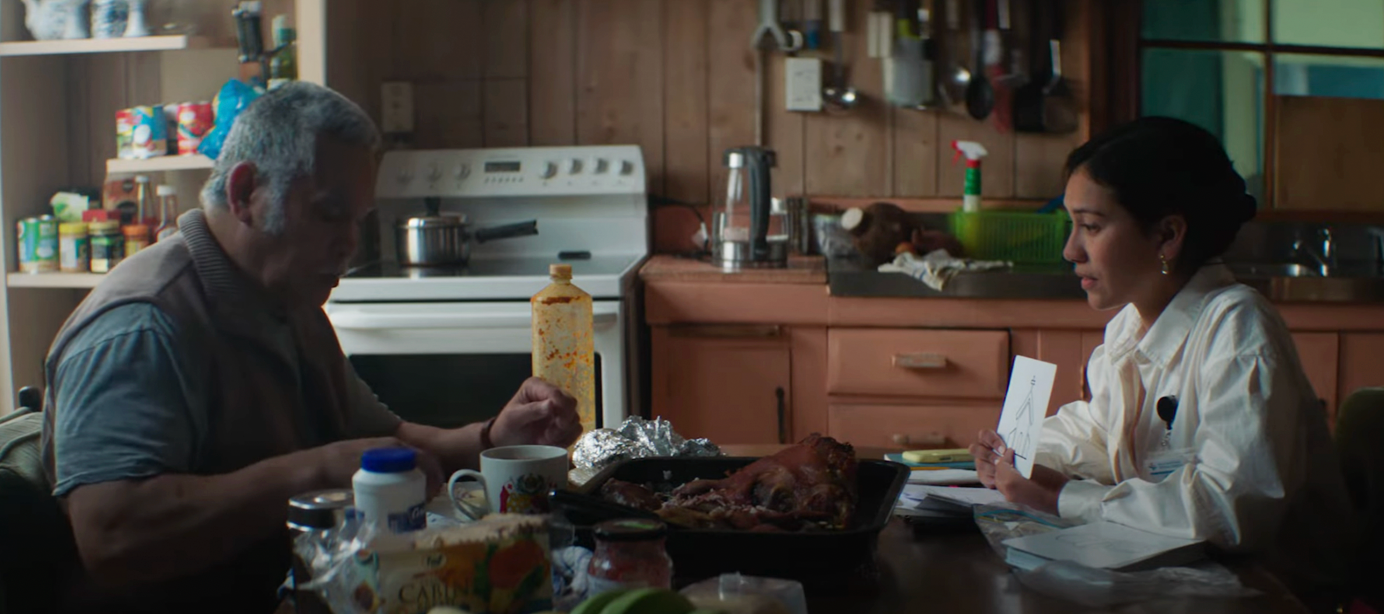
Lea Tupu’anga/Mother Tongue, which was the first professional short film both written and directed by Tongan women, was also your first script! Do you plan to continue writing?
Yeah, I'm currently working on something right now. It's still really early, and I'm playing around with ideas and interviewing a lot of people, but it is a Tongan-centric story that I hope to film in Tonga. That's in the future, and when I have some time, but it's something that I'm very passionate about. Polynesian stories are usually comedies, family, which is amazing. We deserve that. But I also want to see us more in the dramatic realm and pushing into different genres. So that's something that I want to try out. And the great thing is I made my first short with Vea Mafile'o, who's an amazing Tongan director, and we have this relationship that she's scouting for people to be in my short film already. She's like, "I met this guy who's perfect." So, she won't direct this time. I'm going to jump in and direct. But it's so nice to know that I've got this film sister who is willing to do whatever for the short film.
BuzzFeed: I love the sisterhood aspect of it! And definitely relate to wanting to see ourselves represented in other genres. I'm working on a Pasifika-inspired fantasy romance because that's what I want to read, and hardly anyone is writing it. So, I said, "I'm gonna write it."
I can do it! Exactly. I think it's one thing to sit around and complain, "Oh, I just want to see this," but it's another thing to take the initiative to just try and get it on paper. I'm always encouraging people, "Just write it down. Even if it sits on your desktop for years, at least you tried." You might be out one night talking about it, and someone could be like, "Oh, I'd love to explore that with you," because that's what happened to me. But good luck with it!
One of the Lea Tupu’anga/Mother Tongue's major themes is being mixed: the cultural disconnect of not knowing your mother tongue and perhaps not feeling “Tongan enough.” As an afakasi woman myself, that feeling is something I’ve experienced, too. How were you able to overcome this and grow confident in yourself? Or is this an ongoing journey for you?
Well, I actually wrote this, I think I was 24. I had a big identity crisis when I was 21. I was at the University of Auckland, studying psychology, and I was taking a speech language therapy course because I was like, "Oh, it might relate to drama. Speech is a big part of acting." There was a woman who was trying to recruit more Pasifika workers in the field, because there was a lot of stroke patients who reverted to their mother tongue after their stroke, and these practitioners couldn't speak to them or help them. So they were like, "We need more people who can speak the language and help these patients." And I was like, "You know, what? I could do this. Maybe this acting thing's not going to work out." But my conundrum was that I couldn't speak Tongan.
So that inspired the whole idea of the film, and the more that I talk to people — because obviously there's a lot of us in the diaspora, whether it's the US, Australia, Aotearoa, we all have this language trauma of loss of language, right? Because we've assimilated to the Western, main culture, and for some of us, we've accepted it. For my mum, she said, "We didn't teach you because it was a survival thing. We wanted you to not be bullied and have the best chance in life." Then, you have the flip side, where language was taken away from cultures like Māori or Hawaiian. So, it was completely different, but we all had this shared experience. And I was like, "Why is no one talking about this?" I saw the opportunity to share that, and throughout the process of making it — Vea is the same; she doesn't speak Tongan either — I found a lot of healing in making the story.
As you said, language and identity is actually a journey. You're not going to learn the language in a year and be like, boom! You're constantly going to be learning throughout your life, and that's going to change. The whole point and purpose for the film was to share with everyone to accept themselves, that you are enough. And these concepts are kind of made up. What is Samoan enough? What is Tongan enough? You might be Samoan enough, you might be full-blooded, but you're raised in the US, so you're different in that way. So, it was all about self-acceptance. We had a lot of tearful people watching the film. And I was like, "Okay, we all need a little therapy." [Laughs] So, I think it's a universal experience. And it's not just something that's specific to Pasifika people. It's also anyone who's an immigrant of any country.
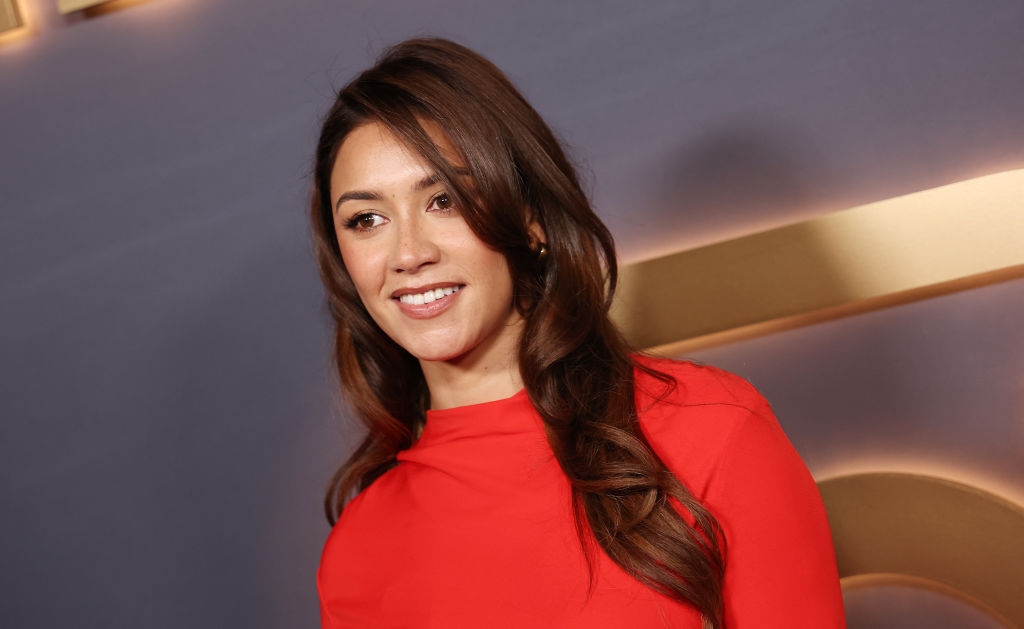
For Pacific Islanders, there are so many aspects of our cultures that we hold close to our hearts, from our foods to our dances to our tattoos. What’s your favorite part of your culture?
I think about this all the time. I'm just like, "I love being Tongan." I love everything about it. I love our humor. I love the way that we love. We're also just so dramatic. I think my calling to be a storyteller definitely comes from the way that my aunties record stories over and over, and the way they would perform it. I've definitely inherited that. We have this concept called māfana, which is like the love, the warmth inside. And I think that's so special, and I try to capture that in anything I try to do that is specific to the Tongan project.
The way that my grandma showed love was keeping in touch with people. Sometimes, me and my cousin joke around. We're like, "Could we actually do what she did?" Because now, we live in a time where we're like, "Boundaries. [Laughs] I can't live like that. I can't open the door for everyone." But she always made time, and she had this phone book. Do you remember you'd write everyone's landline numbers? Her phone book was so tattered because it was used so much that my auntie had to laminate the pages because it was so ruined. And me and my cousin say this now, we feel like we're exactly the same. We're constantly on FaceTime, and I live overseas. I'm constantly on the road, so I try to inherit that way of connecting with people. I think that's the way that she showed love. It's my favorite part of my culture that I want to continue to do.
Do you have a favorite Tongan food?
Oh my god, I'm really missing Tongan food right now. My family are constantly like, "Oh, we're at this function," and sending me photos. Ota ika [raw fish in coconut cream] is amazing. I love it. I'm in Mexico City right now, so I'm just eating ceviche, like, "It's almost the same." I love tapioca. I love lu sipi [lamb, onion, and coconut cream wrapped in taro leaves]. It's funny, I was vegan for two years [laughs] my family would make me a vegan version. But now I'm back to eating meat, I'm fully back into that. My auntie makes this amazing Fijian curry. It's bomb. It's my favorite.
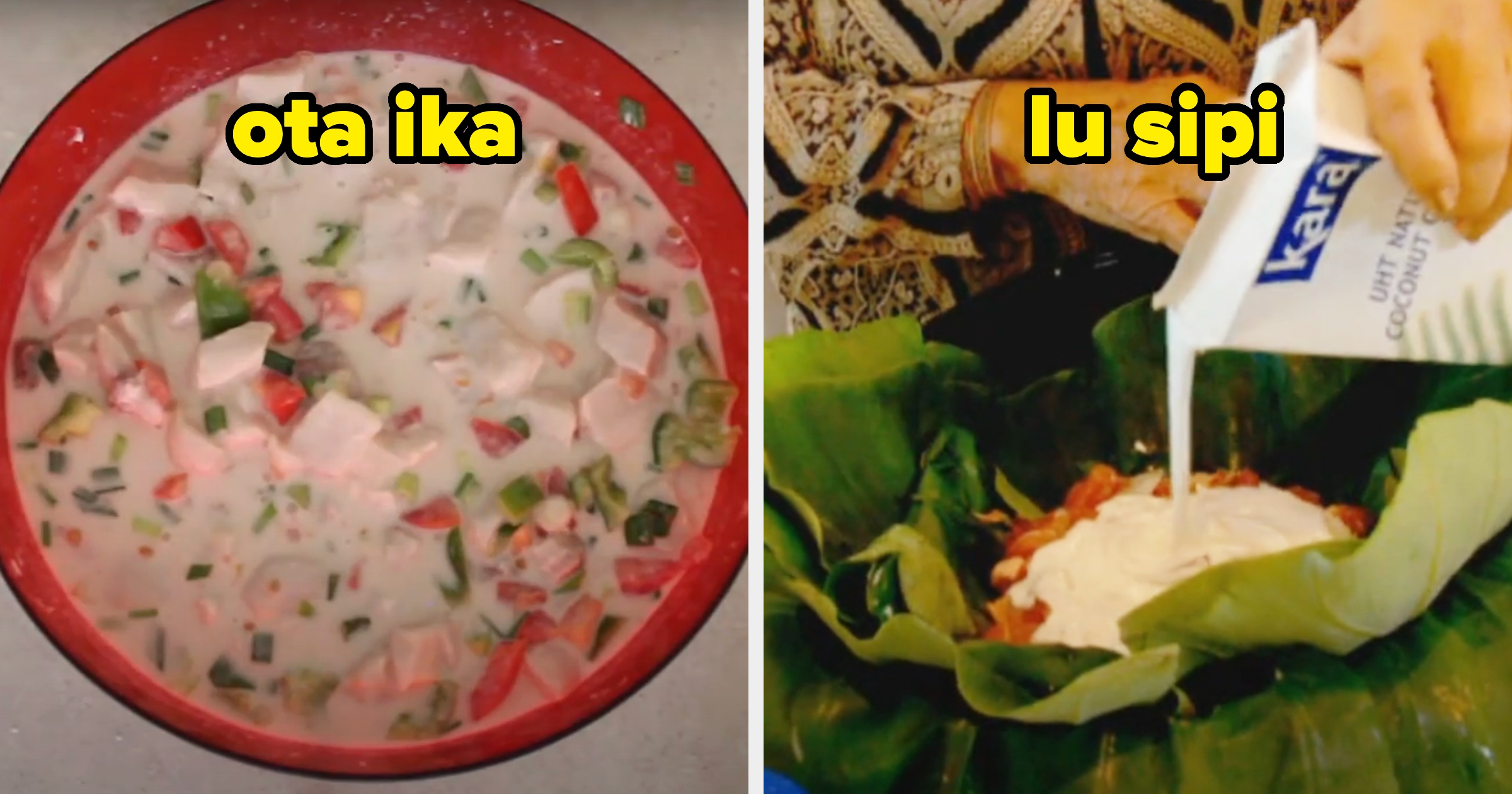
You also star in Chief of War, which comes out on Aug. 1 on Apple TV+. I can’t wait to finally watch! What can you tell us about your character and storyline?
I was very fortunate to play Queen Kaʻahumanu before she was Kuhina Nui, the queen consort of Hawaiʻi. I had no idea who she was before the project. I remember reading the character brief, and the audition came through, and I thought it was a dream because I couldn't believe that Apple was funding a historical Polynesian story. The next morning, I refreshed, and I was like, "Okay, no, this is real. This is happening." I just grew up thinking that things like this wouldn't ever happen. We have all these other historical epics, and I just couldn't believe something like this was being made. That's full credit to Jason Momoa for making this his passion project and something he's been wanting to do for a very long time. And I looked her up, and I have never read [about] any historical character ever like her and completely fell in love and was like, "I don't know if I'm the person to play this role, but fingers crossed, will do my best job." After a long journey, it ended up being a role that I got to play. She's fantastic. I feel like Season 1 is only scratching the surface of who she is. You can look her up, and you can see the legacy she had on Hawaiʻi. It's probably the proudest work that I've ever been a part of.
We get to speak ʻŌlelo Hawaiʻi in the show, which is the language of Hawaiʻi. So funny because I made a whole short about not being able to speak Tongan. And they're like, "Hey, here, speak Hawaiian." And of course, we lie. We're like, "Yeah, easy, can do that." It was the hardest thing I've ever had to do. In The Night Agent, I do an American accent. Still hard, but speaking a whole 'nother language, you can't ad lib another language. It's been the most beautiful journey, a very long journey. I've never worked on something this big before, but the best part is the whole cast, the whole crew, knew that we were making something special. The first of its kind, never been done before, and we all had this unspoken pact of this is bigger than any of us. It's bigger than like, "Oh, I'm in an Apple TV show." No, this is the first of hopefully many. My goal is that little keiki, little Hawaiians, see themselves and go, "Oh my gosh, that was part of our history."
Do you have any favorite behind-the-scenes memories with Jason Momoa?
Our audition was quite funny. Initially, I didn't get the part. They were like, "Sorry, we can't make this happen," because I was on another show. I was quite upset about it. It's very rare that you get upset about auditions because you're just like, "I was never meant to play it, move on." But when it's something that special, you're just like, "Why?" I'm still on Night Agent, Season 1; this is how long ago it was [laughs]. I was telling the ladies who were doing my hair because they knew all about the audition. They're like, "We're so sorry. Hopefully, something comes up later." And my co-star, Hong Chau, who plays Diane Farr in Season 1, was in the chair next to me, and she looked over and was like, "Well, do you want the role?" I was like, "Yeah, I really want it." And she was like, "Well, fight for it. Go back and say you want it." I was like, "Okay, how do I do that? I've never done that." And she really encouraged me.
I went back and messaged my manager, "If there's any way I could play a smaller role or be a background." I just went straight to the bottom. I didn't ask for what I actually wanted. So for two months, I was like, "Okay, it's not mine." Then, it randomly came back, and they were willing to make it work. Both shows were happy to, and then they called me. I had no idea. I didn't read a script. I didn't know that I was a lead 'til I booked it. So, I play Kamehameha, one of his wives. I thought I was wife number five, who comes in, "hi" every episode or something. No, not at all. They called me, and they're like, "We're going to do a chemistry read with Jason Momoa." No pressure. Had never met him, huge superstar. I don't know if you remember, in Season 1 of The Night Agent, I have a straight bob, and Polynesian women have very luscious, beautiful, long hair. They were really struggling to see me in this role. They're like, "We like you, we like the way that you read her, but we can't visually see you as Kaʻahumanu." And I was like, "Okay, what do I have to do?"
So, my manager sent me to Crenshaw in Los Angeles to a wig shop, and I bought this [laughs] cheap, synthetic wig. I was like, "I'll do whatever." Of course, I'm not going to spend hundreds of dollars on a wig, but it's a Zoom audition. They can't really see everything. I ended up doing the read call; I was wearing the wig. Thomas Pa'a Sibbett, who's our writer and creator, was like, "Can I just ask, you look so different, are you wearing a wig?" And I was like, "Yes." The longer we talk, the more my hairline is changing because I didn't pin it down, didn't have anything with me. He was like, "Wow. This is a different person. Who's on the Zoom?" And then after that Zoom, Jason was just like, "Congratulations." And I was like, "Okay, why is he saying congratulations?" [Laughs] Because you hear stories of people being like, "You got it," and then, they go to someone else. So you never want to celebrate too early. And the first time I met him in person, he is like, "Where is that wig? I want to pin that on my wall. That changed everything." And I was like, "Really? Not the performance? The wig?!"
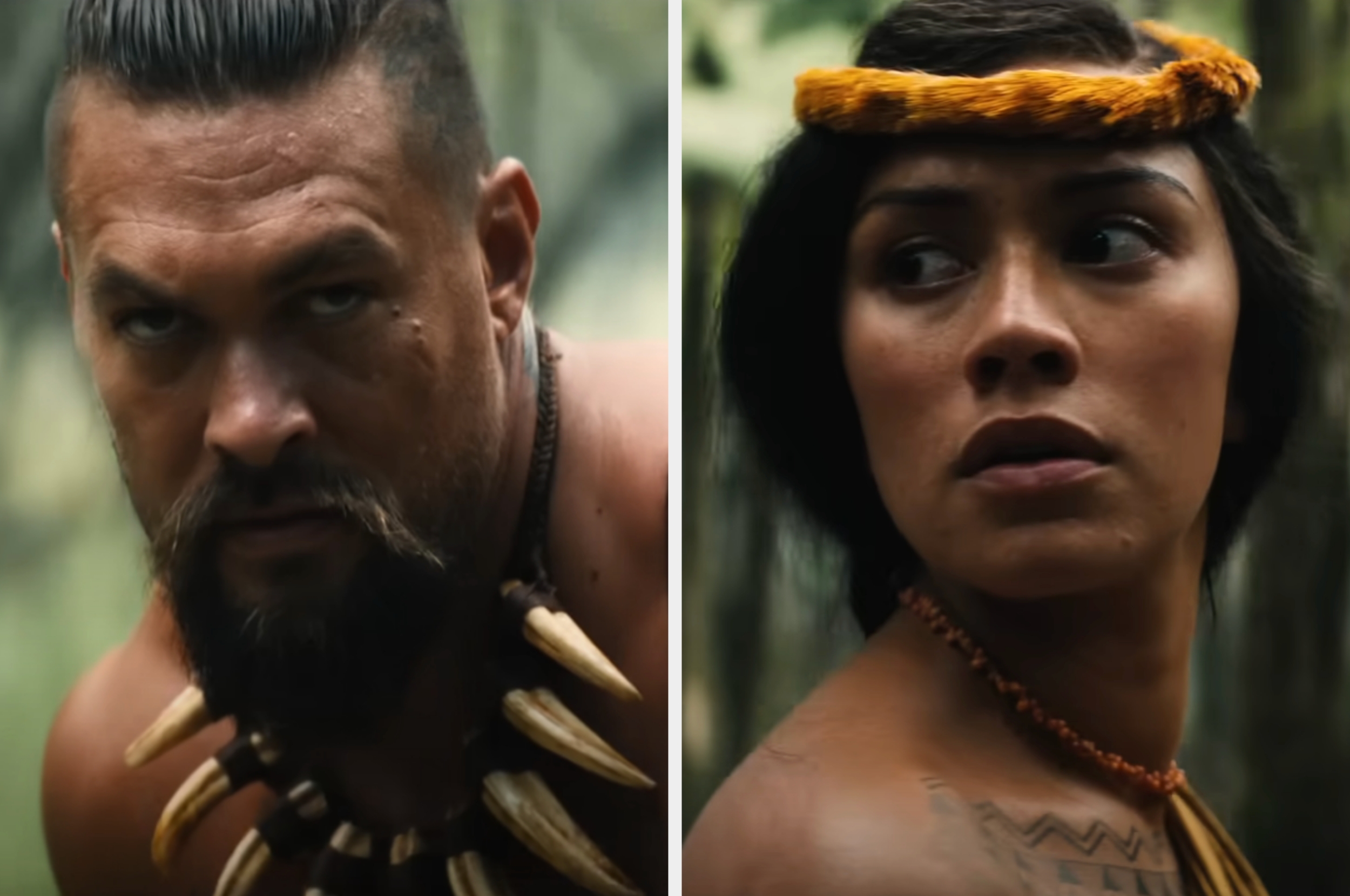
If you could work with any Pacific Islander, who would it be and why?
Ooh, my friend, Keisha Castle-Hughes. I love her to bits. A comedy of some sort. And also, if I could add a bonus one, my other best friend, Frankie Adams. I think us three together would make something fire.
What advice do you have for young Pacific Islander creatives?
Keep going. It's a tough road, and you're going to be discouraged. You're going to love your project, you're going to hate it, you're going to be like, "It is what it is." But making art is a process, and we just have such amazing stories. I think we're such gifted storytellers and naturally gifted in so many ways. We can sing, we can dance, we're athletic, so you just keep going and trusting yourself. We're really humble, and I just want to encourage people to just be cocky and confident, because even if we're faking it, it'll change a lot.
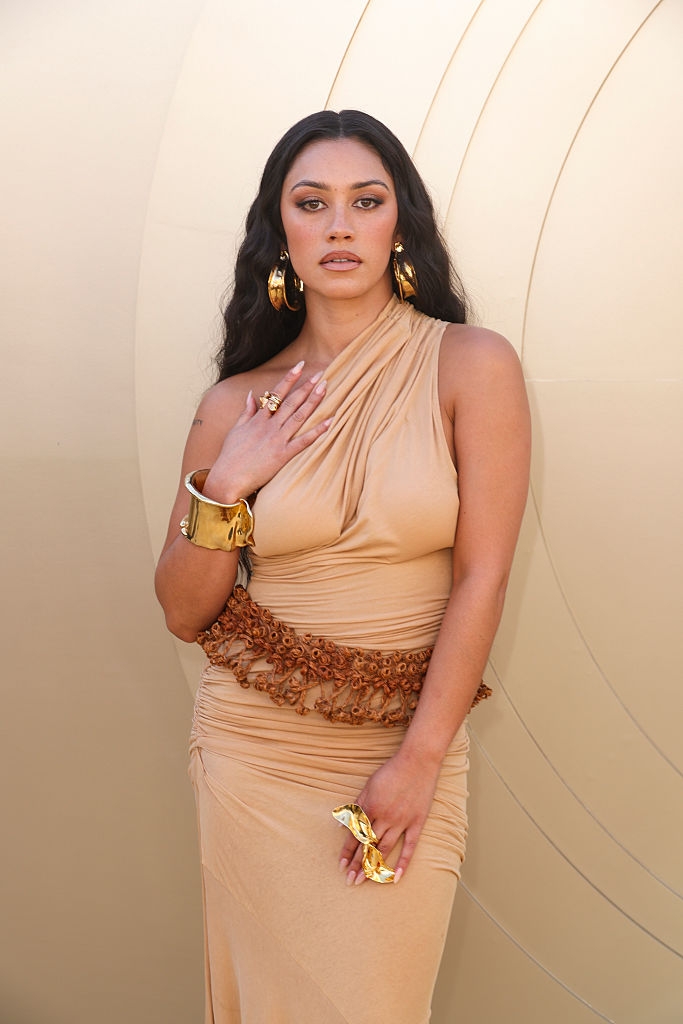
Finally, what does being Pacific Islander mean to you?
It means everything. What I really admire is that we're a collectivist culture. So, if someone wins, we're all winning. We're all on the va'a [canoe] together. And with Chief of War coming out, I think we're going to feel this immense pride of our people, where we come from; we're all going to have chicken skin.
And I just love the way that we love. We're so special and so funny. We're the funniest, and I miss that. When I was doing Season 1 of Night Agent, our writer's assistant, Norman, was like, "What do you miss about New Zealand?" And I was like, "Polynesians." I didn't even skip a beat. Literally, I miss it. I miss laughing and cackling.
Thank you for chatting with us, Luciane! Be sure to keep up with Luciane here.


